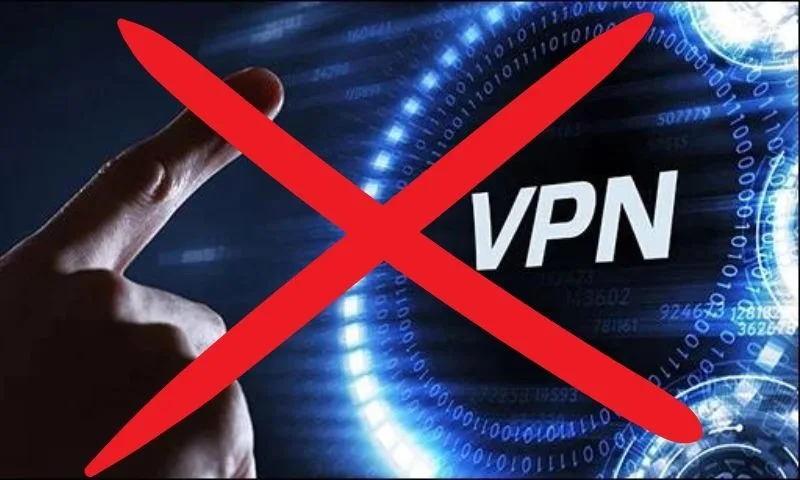Imagine you’re just trying to browse the internet safely, protect your online privacy, or reach websites worldwide. VPNs, or Virtual Private Networks, have long helped people do this. But now, in Pakistan, the situation has changed a lot. VPNs—both paid and free—have been officially banned, causing serious concern for both regular internet users and businesses.
This ban of VPNs has big effects, influencing everyone from casual users to companies that rely on secure internet access. In this article, we’ll look at the main reasons behind this VPNs ban in Pakistan, its impact on internet freedom, and how it could affect daily online life. If you’re curious about why VPNs are creating so much talk in Pakistan, this guide will explain it all.
-
Let’s dive into everything you need to know about this ban on VPNs in Pakistan.
The VPNs Ban: What’s Going On?
The government’s decision to ban VPNs in Pakistan surprised many people. But what does this ban of VPNs really mean? Here’s a simple look at the policy and how it might affect regular internet users.
What is a VPNs, and Why Do People Use VPNs?
A VPNs (Virtual Private Network) is like a secure “tunnel” that helps people connect to the internet safely. It hides their real IP address, so they can browse without revealing their identity. By using a VPNs, people can
-
Browse the internet anonymously.
-
Access websites or content that might be blocked in their area.
-
Protect their personal data from online threats.Because of these benefits, VPNs are becoming more popular.
Privacy and Anonymity:
VPNs prevent websites and third parties from tracking your browsing history.
Security:
VPNs encrypt your data, adding an extra layer of protection when using public Wi-Fi.
Bypassing Geo-Restrictions:
Users can access region-specific content by changing their IP location through a VPNs.
Access to Information:
In some countries with strict online censorship, VPNs provide access to uncensored information.

Why Did Pakistan Ban VPNs?
The Pakistani government says it banned VPNs to improve national security, stop unauthorized data use, and reduce online activities that could harm the country. However, some people worry this ban might also limit digital freedom in Pakistan. Here are the main reasons given for the ban of VPNs:
1. Combatting Cybercrime and Terrorism:
Officials argue that anonymous browsing through VPNs makes it harder to track criminal or terrorist activities.
2. Data Control and Compliance:
The government insists on monitoring data to prevent unauthorized use, which VPNs inherently block.
3. Regulation of Online Businesses and Services:
Many companies operating in Pakistan use VPNs to access services restricted locally. The government is keen on regulating these activities for tax and compliance purposes.
VPNs with Premium and Local Access: What’s the Difference?
Premium VPNs:
These are paid services offering high-security encryption, multiple server locations worldwide, and robust privacy policies. Many of these are foreign-based, which means they operate independently of Pakistan’s regulatory frameworks.
Local VPNs:
Locally operated VPNs or those that offer servers within Pakistan. Some users may opt for these services to improve internet speed without compromising on security.
-
By banning both premium VPNs and local VPNs services, Pakistan has essentially closed off nearly every channel of anonymous or private browsing within the country.
How the VPNs Ban Affects Individuals and Businesses:
This ban of VPNs affects much more than just a few people trying to access blocked content. It impacts every internet user in Pakistan and also affects international companies working there. Here’s what you need to understand.
Effects on Individuals
Limited Access to Global Content: VPNs allowed people in Pakistan to access websites and content that aren’t normally available there. With this ban of VPNs, users lose access to these sites and resources.
Less Privacy and Security:
Without VPNs, people are at a higher risk of hackers, especially when using public Wi-Fi.
Restricted Freedom of Expression:
Many people used VPNs to freely access information and share their opinions online. The ban reduces these freedoms, making it harder for people to stay informed about events around the world.
Effects on Businesses
Challenges for International Companies:
Many companies use VPNs to keep communications secure and protect data. Without this, their work can be negatively impacted.
Increased Costs:
Now, companies may need to look for other secure ways to transmit data, which could be expensive.
Data Security Risks:
With less security, sensitive data is more at risk, which increases concerns about cyber threats.
Legal Consequences for VPNs Use in Pakistan
If you ignore the VPNs ban, you could face serious consequences. The government has warned that using an unauthorized VPNs can lead to legal trouble, including heavy fines or even jail time. Here’s what users need to be cautious about:-
Fines and Penalties:
If someone breaks the rules for the first time, they may have to pay a fine. But if they keep doing it, the fine can get bigger, or they could even go to jail.
Employer Responsibility:
Companies must make sure their employees aren’t using banned VPNs. If they don’t, the company could face fines or other penalties.
Navigating the Ban: Alternatives to VPNs in Pakistan
If VPNs aren’t available, here are some other ways for Pakistanis to browse securely:
1. Proxy Servers:
These can hide your IP address, but they’re less secure and don’t have strong encryption like VPNs. Also, they might be slower and less reliable.
2. TOR Browser:
TOR helps you browse anonymously. It’s secure but slower than most VPNs, so it’s not great for streaming or fast browsing.
3. Use HTTPS Websites:
Always look for “HTTPS” in the website address. It means a secure connection, which protects your data even without a VPNs. However, it doesn’t hide your identity.
4. Cybersecurity Tools:
Since VPNs aren’t an option, it’s even more important to use antivirus software, firewalls, and malware protection for safe browsing.
The official ban on VPNs in Pakistan marks a big change in how the country manages online privacy and internet use. By blocking both international VPNs and local VPNs.

The government has limited people’s ability to browse the internet anonymously, which raises concerns about personal freedom, business activities, and online security. While there are some alternatives, none offer the same privacy and freedom that VPNs did.
With this new rule, users and businesses in Pakistan will have to deal with a more restricted internet. For now, it’s important to stay aware of online security and use legal alternatives. It’s unclear whether this ban will last or if more restrictions will follow.
(FAQs)
Q: Can I use a VPNs if I have a valid license in Pakistan?
A: Yes, organizations with a valid VPNs license from the government can still use VPNs. But this is mostly for certain companies, not regular individuals.
Q: Are all VPNs providers blocked in Pakistan?
A: Yes, all VPNs services, both local VPNs and international VPNs, are officially banned by the government.
Q: Will this ban slow down my internet speed?
A: The ban of VPNs itself doesn’t directly slow your speed, but you might notice slower connections because you can’t access the best VPNs servers.

